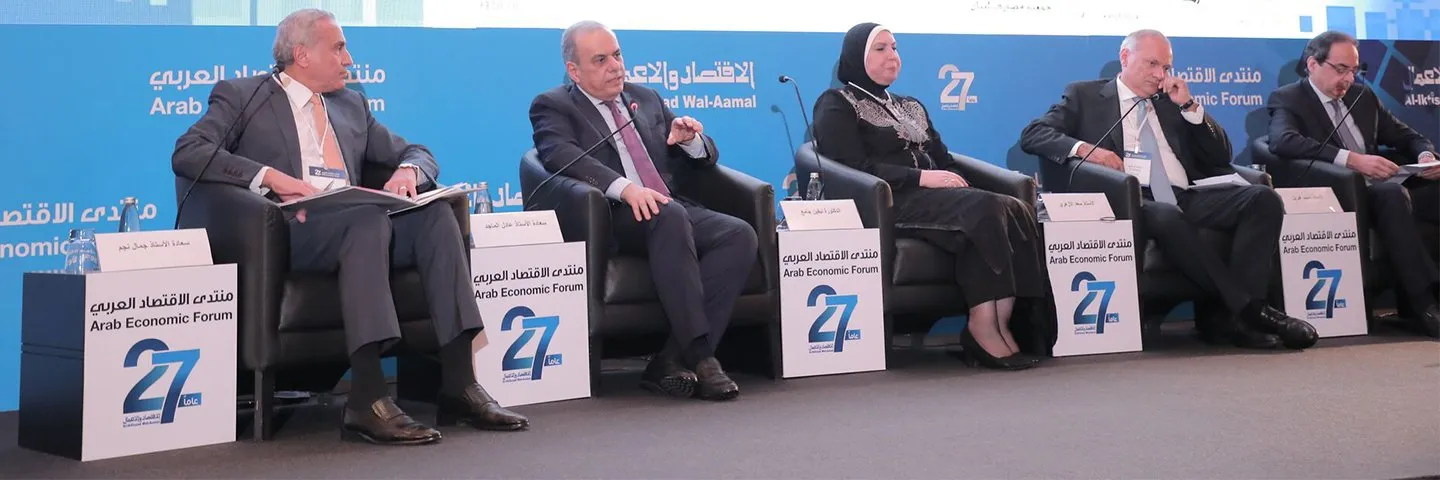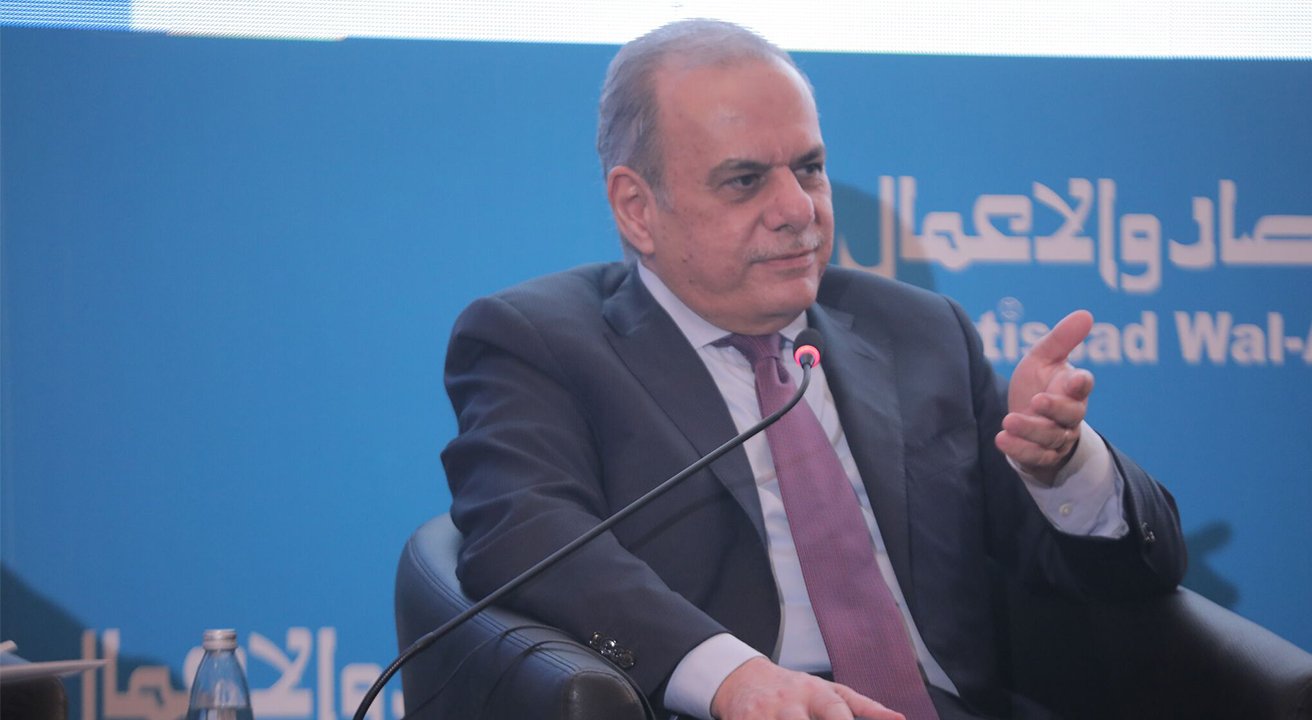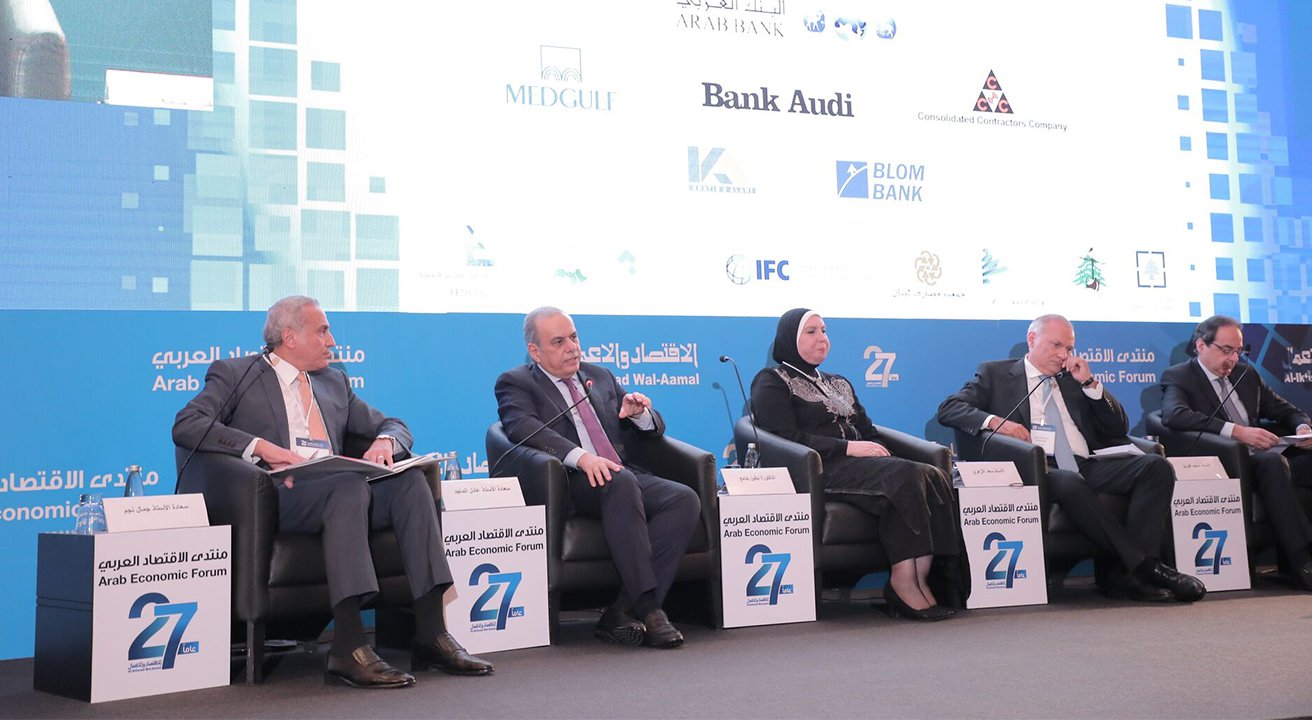
Al-Majed: The Future of Banks Depends on Their Ability to Absorb FinTech Development
Mr. Adel Abdul Wahab Al-Majed, Vice-Chairman & Chief Executive Officer of Boubyan Bank, stated that the biggest FinTech-related challenge is identifying and implementing these technologies in the form of services and integrating them into existing conventional systems in addition to the necessity to establish a new culture for business-management, which means new skills in all areas and, accordingly, an investment in human resources by qualifying and training them and uplifting their skills.
These statements came during the participation of Mr. Adel Al-Majed, who also acts as the Chairman of Kuwait Banking Association, in the main session of the Arab Economic Forum organized by Al-Iktissad Wal-Aamal Group. The Forum kicked off its activities today in Beirut under the auspices and in the presence of H.E. Mr. Saad Al-Hariri, Prime Minister of Lebanon, and H.E. Mr. Mostafa Madbouly, Prime Minister of Egypt.
Al-Majed stated: “The past years have witnessed huge growth in FinTech which includes a huge number of investment opportunities where the total investments grew from USD 9 billion in 2012 to approximately USD 120 billion at the end of 2018.”
“The success of FinTech companies is attributed to the fact that they provide remarkable services to all customers’ segments, and that they are distancing themselves from conventional banking models which are similar to banking services, while allowing customers to experience the developed digital services through user-friendly mobile Apps.”, he added.
Al-Majed went on to add: “By reviewing venture capital investments that have been injected by investment companies’ capital around the world in FinTech startups, we will find that the U.S.A. is in the forefront with USD 31.6 billion, followed by the U.K. with USD 5.4 billion, and Europe with USD 4.4 billion, however, the number is reduced to USD 45 million merely in the Middle East.”
Al-Majed further added: “The GCC countries have the will and are open to FinTech, however, there are needs to establish a framework for a FinTech ecosystem including the business environment, the ability to reach out to markets, the government support, and the ability to have access to capital.”
“Banks must get things in order to be more flexible, to think outside the box, and to steer away from strict official procedures which were set in the past. The need of the hour is to acknowledge the changes in technology and in customers’ expectations for quicker and more convenient services and products.”, he stated.
Boubyan Bank’s Experience
Speaking about Boubyan Bank’s experience in this domain, Al-Majed said: “The bank has taken great steps in this context including the restructuring of some of the bank’s departments, activities and the internal work mechanism to be aligned with such developments. We have also created a new department with new responsibilities that may have not existed before, not in their current form at least. Additionally, we have established the bank’s Innovation Center.”
“Our digital and innovation journey did not start from a design perspective, rather, it started by focusing on customers and innovating banking products and services which suit them and meet their expectations. The bank believes that FinTech is the future, hence, we believe that cooperation with FinTech and integrating it with banks is better than competing with it. Accordingly, Boubyan Bank showed increased interest in innovation and in partnering with FinTech companies.”, he added.
He went on to explain: “The bank is actively involved in the startup community in Kuwait, and it has been working with startups in collaboration with “Plug and Play”, the international innovation platform, in order to give us access to FinTechs around the world.”
“Boubyan’s experience and reinforcing its image as a modern Islamic bank with focus on technology is manifested in the bank’s attraction of new generation to join the bank as well as the bank’s keenness on training its staff to act as advisors who provide solutions to clients rather than focusing merely on selling products to them.”
Financial and Banking Supervision
On the other hand, Al-Majed stressed the importance of banking and financial supervision by stating: “While we work on facing other challenges, still there are risks which we should avoid, or at least minimize their potential materialization; the most serious of such risks are those associated with hacking, user data-theft and theft of users’ funds. Unless there are necessary means of protection, such data and funds will be vulnerable to unlimited hacking attempts in this open space.”
He added: “In light of the expansion of FinTech companies around the globe, and their association with many different parties and partners, loopholes may appear which may be manipulated by individuals or organizations in illegal operations, abuse of systems, money laundering and many other illegal activities. Hence, we should observe precaution in order to combat such operations and activities.”
Al-Majed highlighted the pivotal role played by the regulatory authorities in developing the proper environment for adopting FinTech, and he spoke high of the Central Bank of Kuwait which has a clear vision and an effective strategy towards adopting technology and steering it towards the benefit of the society.
“The Central Bank of Kuwait adopts the latest innovations while exchanging expertise with other regulatory authorities in order to develop the most suitable system for our society before issuing new regulatory instructions while being keen on involving banking institutions and FinTech companies in such discussions to know their opinions and ideas in order to improve the regulatory instructions and regulations and enhance them to the benefit of all the competent parties towards a sustainable growth.”, Al-Majed concluded.

















.bc47546ea519.svg)